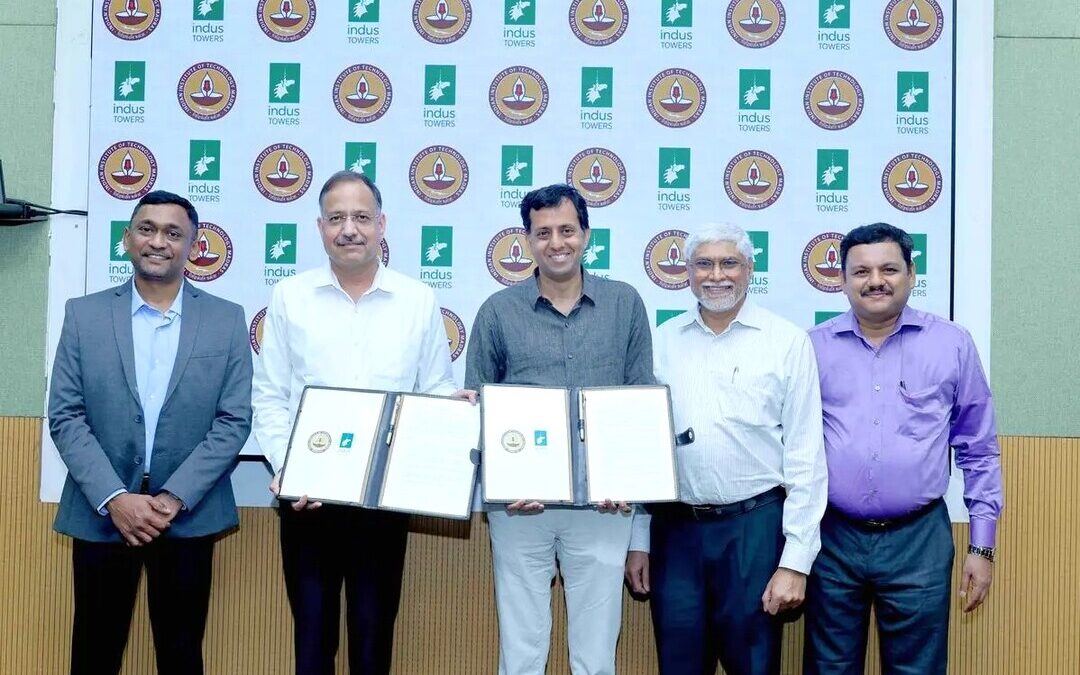Sustainable GFRP Structures Drive Indus Towers–IIT Madras Collaboration
Indus Towers and IIT Madras join forces to develop sustainable GFRP structures for India’s future telecom infrastructure.
Indus Towers Ltd., one of the world’s largest telecom tower operators, has partnered with the Indian Institute of Technology Madras to advance research in sustainable materials, such as glass fiber-reinforced polymer structures.
The project aims to replace conventional steel with lightweight, durable and sustainable alternatives. The move marks India’s first industry-academia tie-up focused on the material’s role in future infrastructure.
Push for Sustainable Innovation
The research is part of Indus Towers’ corporate social responsibility program, Pragati. The initiative funds projects that drive inclusive growth and environmental progress.
“GFRP offers a transformative opportunity that is structurally sound, cost-effective and aligned with our sustainability goals,” said Anil Gupta, chief technology and delivery officer at Indus Towers. “Our focus is on scalable and environmentally responsible solutions that serve both industry and society.”
Gupta said the company views GFRP research as an opportunity to redefine material science in telecom infrastructure. He emphasized the importance of strength, durability and low maintenance.
Why GFRP Matters
GFRP is gaining ground worldwide as a next-generation construction material. It boasts a superior strength-to-weight ratio and is resistant to corrosion, particularly in coastal or high-exposure areas.
Its light weight lowers transport and installation costs. Low maintenance also reduces lifecycle expenses. Because the material can be reused and adapted to multiple designs, industry experts call it a strong candidate for future-ready infrastructure.
IIT Madras Role
IIT Madras will lead research into GFRP’s strength, durability and lifecycle sustainability. The findings could shape design and safety standards for sectors such as telecommunications and construction.
“The grant allows us to assess the potential of glass fiber-reinforced polymers for towers, scaffolding, roofing and framing systems,” said Prof. Ravindra Gettu, professor-in-charge at IIT Madras. “The research will deliver models of durability and sustainable applications.”
The team will focus first on telecom towers. However, it will also test use cases in staircases, ladders, scaffolding and dry cladding.
From Lab to Market
IIT Madras officials said industry tie-ups help bridge the gap between research and real-world solutions.
“Such partnerships take innovations from the lab to market-ready, socially impactful applications,” said Prof. Ashwin Mahalingam, dean of alumni and corporate relations at IIT Madras. “The GFRP research project with Indus Towers aims to deliver durable and future-ready alternatives for India’s telecom sector.”
Indus Towers’ Wider Vision
Indus Towers owns more than 251,000 towers across all 22 telecom circles in India. It serves every major wireless operator. The company has also pioneered the use of green energy in its operations.
The firm said the partnership reflects its vision of a digitally connected and sustainable India. By investing in advanced materials, Indus Towers hopes to create resilient and eco-friendly infrastructure for the long term.
Also Read:
TCS and IIT Kanpur Partner to Use AI for Sustainable Urban Planning
Nirmal Menon
Related posts

Subscribe
Error: Contact form not found.


